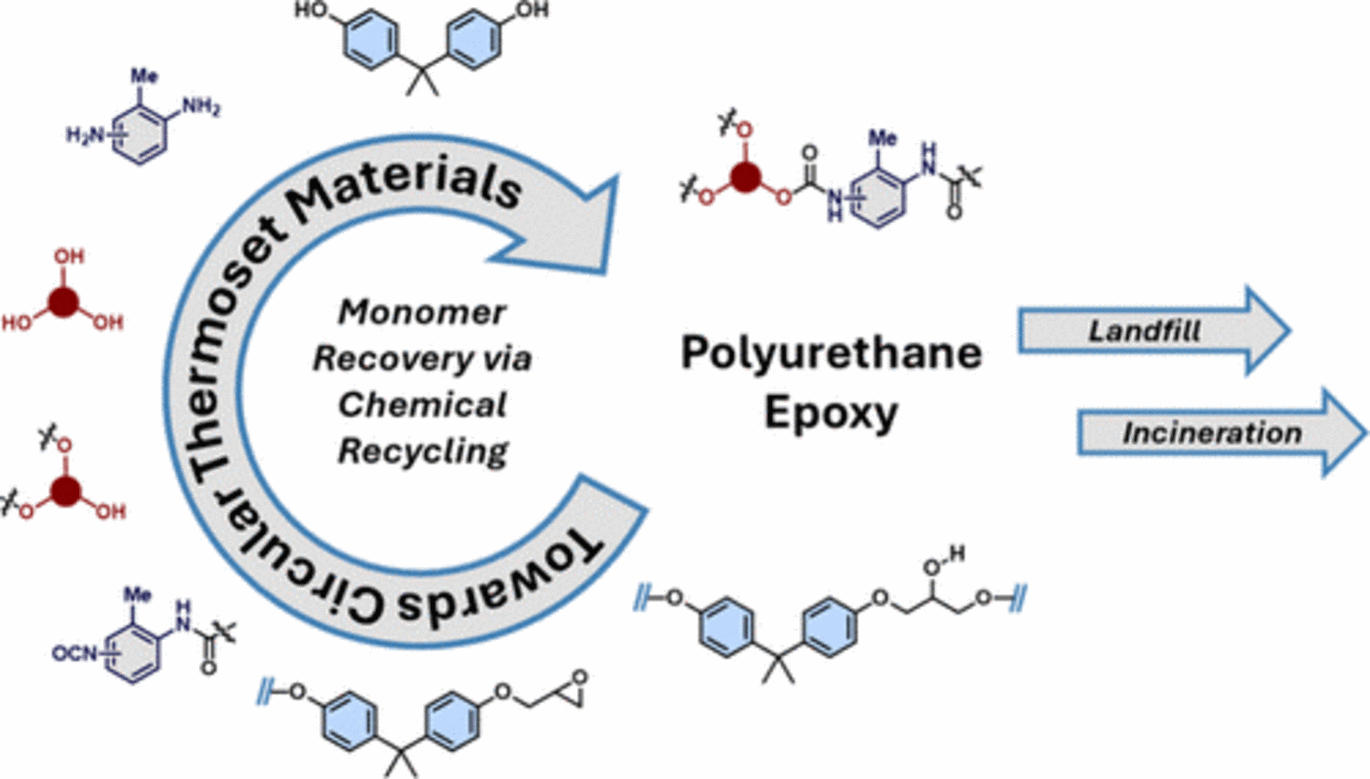Perspective in ACS Org. Inorg. Au
We have just published a perspective on the development of monomer recovery technologies from plastics designed to last. Check it out!
Abstract: In order to prevent the current unsustainable waste handling of the enormous volumes of end-of-use organic polymer material sent to landfilling or incineration, extensive research efforts have been devoted toward the development of appropriate solutions for the recycling of commercial thermoset polymers. The inability of such cross-linked polymers to be remelted once cured implies that mechanical recycling processes used for thermoplastic materials do not translate to the recycling of thermoset polymers. Moreover, the structural diversity within the materials from the use of different monomers as well as the use of such polymers for the fabrication of fiber-reinforced polymer composites make recycling of these materials highly challenging. In this Perspective, depolymerization strategies for thermoset polymers are discussed with an emphasis on recent advancements within our group on recovering polymer building blocks from polyurethane (PU) and epoxy-based materials. While these two represent the largest thermoset polymer groups with respect to the production volumes, the recycling landscapes for these classes of materials are vastly different. For PU, increased collaboration between academia and industry has resulted in major advancements within solvolysis, acidolysis, aminolysis, and split-phase glycolysis for polyol recovery, where several processes are being evaluated for further scaling studies. For epoxy-based materials, the molecular skeleton has no obvious target for chemical scission. Nevertheless, we have recently demonstrated the possibility of the disassembly of the epoxy polymer in fiber-reinforced composites for bisphenol A (BPA) recovery through catalytic C–O bond cleavage. Furthermore, a base promoted cleavage developed by us and others shows tremendous potential for the recovery of BPA from epoxy polymers. Further efforts are still required for evaluating the suitability of such monomer recovery strategies for epoxy materials at an industrial scale. Nonetheless, recent advancements as illustrated with the presented chemistry suggest that the future of thermoset polymer recycling could include processes that emphasize monomer recovery in an energy efficient manner for closed-loop recycling.

